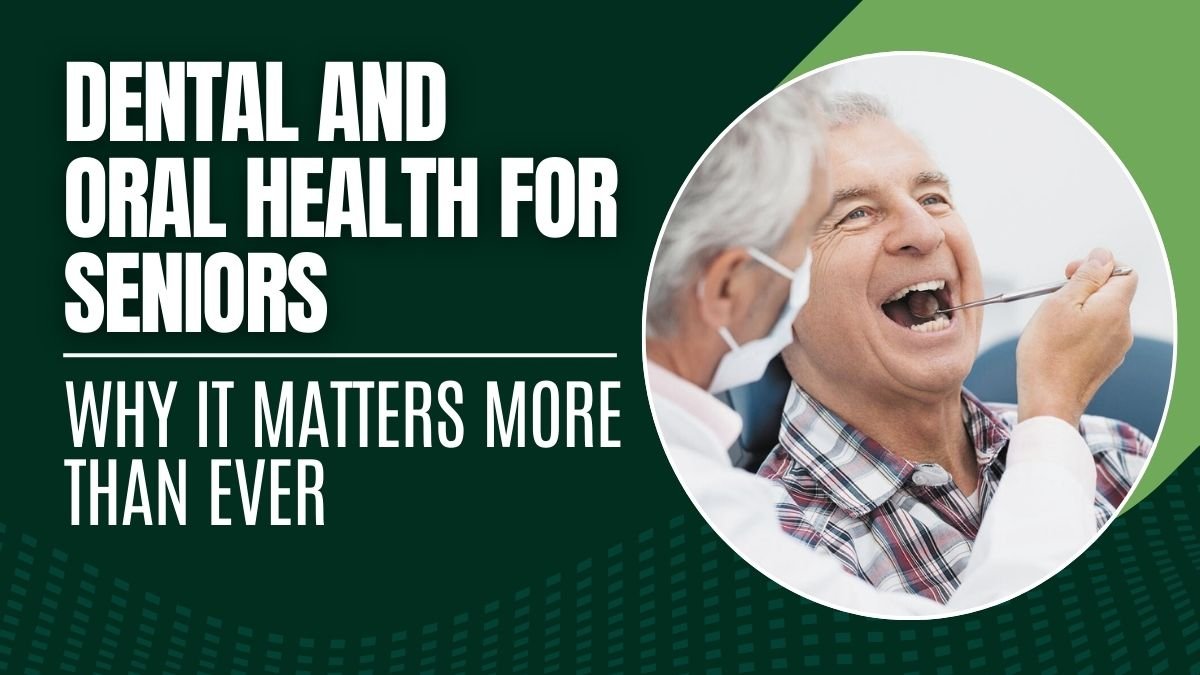Dental and oral health for the elderly is an important part of their overall health. As we age, the mouth and teeth undergo numerous changes, making the need for dental care even more important than ever. Proper care not only keeps teeth and gums healthy but also improves nutrition, self-confidence, and quality of life. In this guide, we will explore key aspects and practical tips for oral health care for seniors.
Why Oral Health Is Important for the Elderly
Oral health is directly linked to overall health. Poor dental hygiene can lead to health problems like heart disease, diabetes, and respiratory infections. Maintaining oral health is extremely important for the elderly for the following reasons:
- Preventing tooth decay and gum disease: The risk of cavities and gum problems increases with age.
- Managing chronic diseases: Chronic diseases like diabetes can exacerbate dental and gum problems.
- Improving nutrition: Healthy teeth and gums help with proper chewing and digestion.
- Improving Quality of Life: Good oral health reduces pain and discomfort and improves overall quality of life.
Common Oral Health Problems in the Elderly
Many oral health problems are common in the elderly, including:
- Dry Mouth (Xerostomia): Medications or certain health conditions can lead to a lack of saliva in the mouth, which increases the risk of tooth decay and gum problems.
- Gum Disease (Periodontitis): This serious problem can lead to tooth loss and is also linked to other health problems, such as heart disease.
- Tooth Loss: Tooth loss can affect eating, speech, and self-esteem.
- Oral Cancer: The risk of oral cancer increases with age, so regular dental checkups are essential.
- Tooth Sensitivity: Wearing away enamel and receding gums can make teeth sensitive to hot and cold things.
Tips for Maintaining Oral Health for the Elderly
For healthy and strong teeth and gums, the elderly should adopt the following habits:
- Regular dental checkups: Visit the dentist at least twice a year. This helps detect and treat problems early.
- Proper brushing and flossing: Brush twice a day with fluoride toothpaste and floss daily. An electric toothbrush can also help with better cleaning.
- Adequate water intake: Drink enough water to avoid dry mouth. Chewing sugar-free gum also increases saliva production.
- Healthy diet: A balanced diet rich in fruits, vegetables, and dairy products strengthens teeth and gums.
- Quit smoking: Smoking increases the risk of gum disease and oral cancer.
- Denture care: Clean dentures daily and remove them at night. This helps prevent infection and maintain gum health.
Management of Specific Oral Problems
- For dry mouth: Use saliva substitutes and avoid caffeine, alcohol, and tobacco. Consider medications that increase saliva production.
- For sensitive teeth: Use toothpaste for sensitive teeth and avoid acidic foods and beverages.
- For gum disease: Maintain strict oral hygiene and use antimicrobial mouthwash. In severe cases, seek treatment from a periodontist.
- For tooth loss: Consider options such as dental implants, bridges, or dentures.
The Role of Caregivers
It is very important for caregivers to ensure the oral health of older adults, especially those with mobility or cognitive difficulties.
- Help with daily oral hygiene: Assist with brushing and flossing when necessary.
- Monitor dental problems: Look for pain, bleeding gums, or other changes.
- Encourage dental visits: Schedule regular appointments and keep them on time.
- Encourage a healthy diet: Provide nutrient-rich foods that support teeth and gums.
Conclusion
Oral health for the elderly is an integral part of their overall health. Regular dental checkups, proper dental hygiene, and a healthy lifestyle can help older adults maintain healthy teeth and gums.
A healthy mouth not only reduces pain and discomfort but also improves eating, speech, and self-confidence. Both the elderly and their caregivers can take steps towards a healthy and smiling life by following these tips.
Remember, a healthy mouth is the first step towards a healthy body. Take the necessary steps to protect your oral health today.
